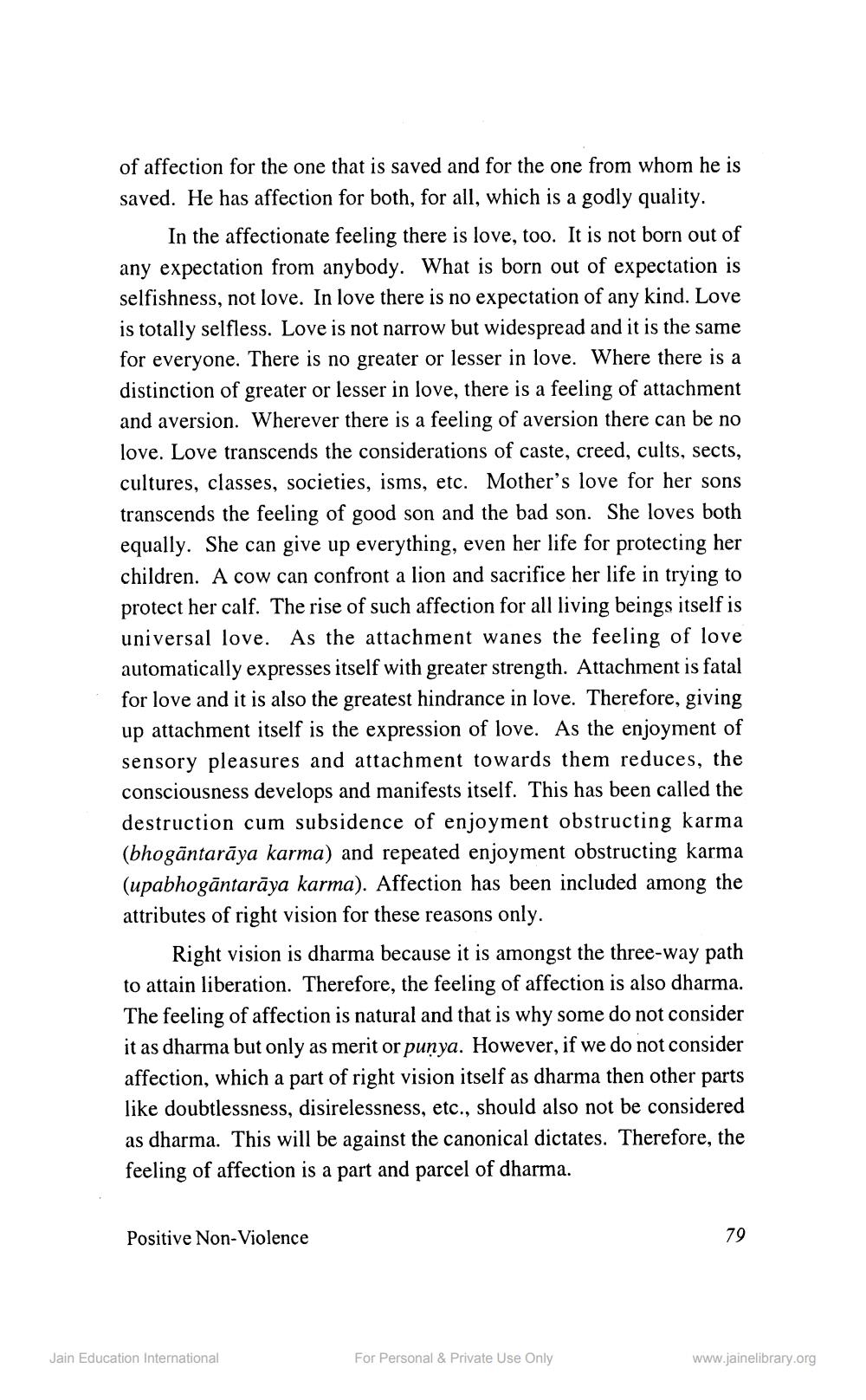________________
of affection for the one that is saved and for the one from whom he is saved. He has affection for both, for all, which is a godly quality.
In the affectionate feeling there is love, too. It is not born out of any expectation from anybody. What is born out of expectation is selfishness, not love. In love there is no expectation of any kind. Love is totally selfless. Love is not narrow but widespread and it is the same for everyone. There is no greater or lesser in love. Where there is a distinction of greater or lesser in love, there is a feeling of attachment and aversion. Wherever there is a feeling of aversion there can be no love. Love transcends the considerations of caste, creed, cults, sects, cultures, classes, societies, isms, etc. Mother's love for her sons transcends the feeling of good son and the bad son. She loves both equally. She can give up everything, even her life for protecting her children. A cow can confront a lion and sacrifice her life in trying to protect her calf. The rise of such affection for all living beings itself is universal love. As the attachment wanes the feeling of love automatically expresses itself with greater strength. Attachment is fatal for love and it is also the greatest hindrance in love. Therefore, giving up attachment itself is the expression of love. As the enjoyment of sensory pleasures and attachment towards them reduces, the consciousness develops and manifests itself. This has been called the destruction cum subsidence of enjoyment obstructing karma (bhogāntarāya karma) and repeated enjoyment obstructing karma (upabhogāntarāya karma). Affection has been included among the attributes of right vision for these reasons only.
Right vision is dharma because it is amongst the three-way path to attain liberation. Therefore, the feeling of affection is also dharma. The feeling of affection is natural and that is why some do not consider it as dharma but only as merit or punya. However, if we do not consider affection, which a part of right vision itself as dharma then other parts like doubtlessness, disirelessness, etc., should also not be considered as dharma. This will be against the canonical dictates. Therefore, the feeling of affection is a part and parcel of dharma.
70
Positive Non-Violence
Jain Education International
For Personal & Private Use Only
www.jainelibrary.org




